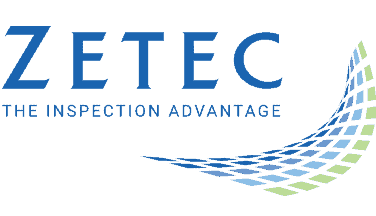Flaw Detection in Rails and Tubes

Cold forging is utilized to increase the strength of the material being forged. When aluminum rails and tubes are cold-forged, it’s often with the intent that they will be used in high-stress environments.
The problem is that cold forging, by nature, can create an environment for flaws. Cold forging in rails and tubes have relatively high deforming forces, which is why there is a vital need for manufacturers to employ non-destructive testing (NDT). Leveraging NDT for flaw detection in rails and tubes allows manufacturers to ensure cold-forged components meet quality and safety standards.
The Role of NDT in Linear Rail Inspection
Linear rails are the backbone of many manufacturing and logistic centers. Components such as linear actuators and gantries depend on the precision forging of aluminum rails and their ability to withstand high-stress environments. Machine tools, in particular, often depend on the accuracy and stiffness of a linear rail to perform precise, repetitive functions.
Linear rails must have load capacity, travel accuracy, and rigidity. If flaws are present, they inhibit their ability to function properly. Even the smallest flaw can compromise an operation’s integrity. That’s why it’s crucial to test linear rails before they leave manufacturing.
Eddy Current for Aluminum Linear Rail Flaw Detection
Cold forging requires aluminum to undergo heat treatment, rolling, drawing, pressing, spinning, extruding, and heading. Because these processes can result in the presence of flaws, eddy current testing (ECT) is the ideal method for flaw detection. ECT utilizes an electric coil to induce a magnetic current in the aluminum to be inspected. Any change in the flow of the current can be an indication of flaws or irregularities. With the help of advanced eddy current probes and instruments, manufacturers can conveniently and accurately verify the quality of the cold-forged aluminum.
The Role of NDT in Aluminum Tube Inspection
Aluminum tubes are used in nearly all industries, including aerospace, automotive, and construction. Builders often prefer aluminum tubing because of its affordability in comparison to steel. Aluminum tubes are strong but also lightweight, making them ideal for many medical uses.
The combination of strength and flexibility is due, in large part, to cold forging. But, as we’ve discussed, that leaves the potential for flaws. Slight variations in tube thickness can lead to severe weakening. If cold welds are off, even by the slightest bit, strength is lessened, compromising structural integrity.
To ensure quality, aluminum tubes should be thoroughly inspected.
Phased Array Ultrasonic Testing for Aluminum Tube Inspection
Phased array ultrasonic testing (PAUT) can be an ideal NDT solution for aluminum tube inspection depending on the specifications and application. PAUT works by inducing sound waves into the aluminum material. The principle works much like echolocation. The sound waves bounce back images painting a picture of the tube, revealing any flaws or cracks.
Keep in mind, eddy current testing excels in tubing inspections and depending on the inspection application and specifications, can be the optimal option.
Accurate Flaw Detection in Rails and Tubes
Cold forging can save energy and create reliable aluminum rails and tubes. But, with every manufacturing process, components must be checked for quality. For flaw detection in rails and tubes, manufactures can rely on NDT methods such as eddy current testing and ultrasonic testing, specifically phased array ultrasonic testing.
- A handheld, eddy current testing system that allows technicians to quickly inspect a sizable sample run of aluminum rails and tubes allows manufacturers to meet production standards and goals.
- A durable, and easy-to-use PAUT system that lends itself to automation allows technicians to run comprehensive tests that reveal any flaws comprising the strength and flexibility of aluminum materials.
Flaw detection in rails and tubes is essential to the integrity of many of the most important structures across industries. Manufacturers need reliable technology to be sure linear rails and aluminum tubes meet quality and safety standards.
Zetec is a leading provider of non-destructive testing solutions, specializing in ultrasound, eddy current, and mechanical systems solutions. For more information on our cutting-edge instrumentations and software for flaw detection in rails and tubes, contact us today.
